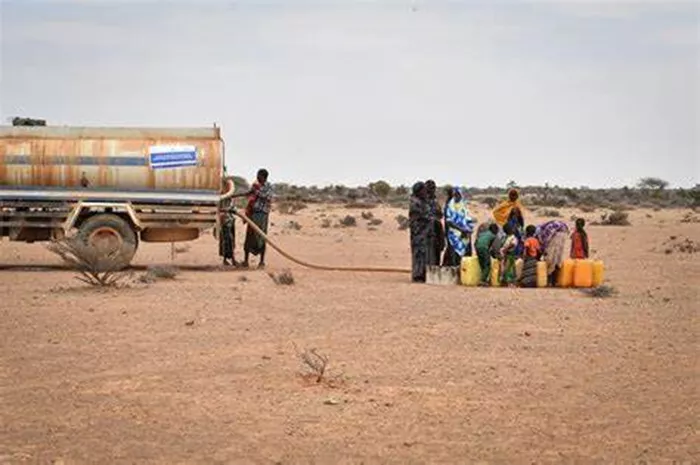Composting, long viewed as a tool for waste management, is increasingly being recognized as a critical public health and climate intervention. By turning food scraps and yard waste into nutrient-rich soil, communities can curb methane emissions, reduce reliance on synthetic fertilizers, and support environmental equity.
A Climate and Health Imperative
Nearly half of global waste is organic and compostable. When left unmanaged in landfills, this waste decomposes anaerobically, releasing methane—a greenhouse gas over 80 times more potent than carbon dioxide. Methane contributes to global warming and ground-level ozone pollution, which is linked to respiratory illness, heat-related disease, and even increased transmission of vector-borne illnesses like malaria.
Improperly managed organic waste also produces leachate, a toxic liquid that can contaminate groundwater with heavy metals and pathogens—posing significant risks to low-income communities located near landfills. Composting offers a safe alternative by diverting waste from landfills, reducing leachate production, and limiting pest populations that spread diseases such as leptospirosis and salmonella.
Experts say composting supports broader climate resilience by enhancing soil structure, retaining moisture, and improving crop yields. The practice also aligns with public health goals, providing cleaner air, better water quality, and reduced heat risks in vulnerable communities.
What Is Composting?
Composting is a controlled, aerobic biological process in which microbes break down organic matter—such as food scraps, yard trimmings, and paper—into a stable, carbon-rich product called humus.
These microbes include bacteria like gamma-proteobacteria and Bacteroidetes, as well as fungi such as actinomycetes and Ascomycota. Some composting systems also incorporate earthworms in a process known as vermicomposting. In countries like China, fungi such as Trichoderma harzianum are commercially used to enhance plant health and soil vitality.
The result is a nutrient-dense soil amendment that boosts nitrogen, phosphorus, and potassium (NPK) levels, supports soil biodiversity, and reduces erosion and fertilizer dependency. Compost also improves water retention, making it an effective strategy for soil regeneration and food security—especially in urban and climate-impacted regions.
Successful composting requires a balanced mix of nitrogen-rich “greens” (e.g., vegetable peels, grass clippings) and carbon-rich “browns” (e.g., dried leaves, shredded paper). Contaminants such as plastic, dairy, meat scraps, and chemically treated yard waste should be avoided to prevent pests and toxic runoff.
Composting in Climate Policy
Composting is now embedded in climate action plans worldwide. In the U.S., states like California have passed legislation to scale up organic waste diversion. Senate Bill 1383 mandates a 75% reduction in organic waste disposal and a 20% increase in food recovery by 2025. Cities like San Francisco have diverted over 80% of their waste through mandatory composting programs, while Vermont implemented a statewide composting mandate in 2020.
At the global level, the UN Environment Programme (UNEP) and the UN Economic and Social Commission for Asia and the Pacific (ESCAP) are promoting plant-based diets, composting infrastructure, and food system reform to curb emissions from agriculture and livestock. These efforts support the Paris Agreement’s target of limiting global warming to 1.5°C.
The Intergovernmental Panel on Climate Change (IPCC) has urged governments to expand composting and anaerobic digestion infrastructure while improving waste collection systems. These recommendations are already influencing national climate strategies.
Urban planners increasingly include composting in green infrastructure, integrating it into rain gardens, parks, and community farms to manage runoff, reduce heat islands, and improve food access in underserved neighborhoods.
Access and Equity in Composting
Despite its benefits, composting remains inaccessible in many low-income communities. Barriers include lack of curbside collection, safe composting space, and localized education. Language barriers and a lack of outreach programs further limit participation.
Yet these same communities—often the most impacted by pollution and climate change—stand to benefit the most from composting. School-based and neighborhood composting projects can educate residents, reduce food waste, and empower local leaders. Inclusive environmental policies are essential to making composting a truly equitable climate and health solution.
Public health agencies must invest in infrastructure, fund local programs, and offer multilingual education to ensure everyone, regardless of income or location, can participate in composting and benefit from its outcomes.
A Call to Action
Composting offers a powerful and low-cost way to address climate change and protect public health. By turning household waste into compost, individuals and communities can cut methane emissions, improve air and water quality, and regenerate soils.
These small actions can produce large-scale benefits: cooling the planet, preventing disease, and reducing reliance on harmful chemicals. To realize these gains, food waste must be reframed not as a nuisance, but as a public health opportunity.
Now is the time to act. Start composting at home, join a local program, or advocate for better compost infrastructure in your city. Composting isn’t just an environmental responsibility—it’s a vital tool for healing communities and the planet.
Related Topics
































